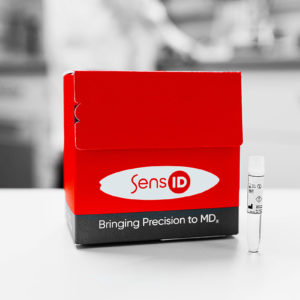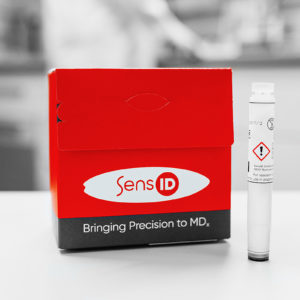Product description
Digital pathogen diagnostics via next-generation sequencing (NGS) or polymerase chain reaction (PCR) opens up new horizons for healthcare.
Traditional diagnostic methods, such as culturing blood samples, often require precious time to identify a limited number of pathogens. In contrast, NGS platforms enable the detection of thousands of microbes, including bacteria, DNA viruses, fungi and parasites, within one day. Although PCR methods are even faster, they often have limitations in detecting multiple pathogens simultaneously.
In both NGS and PCR approaches, the process begins with the extraction of DNA, including cell-free DNA (cfDNA), from the patient’s blood or plasma, which contains potential pathogens. The subsequent analysis, especially in NGS methods, is performed using bioinformatic algorithms to compare the collected data with clinical genome databases.
The knowledge gained about identified pathogens is crucial for the diagnosis and treatment of various diseases, including life-threatening bloodstream infections such as sepsis, cancers and endocarditis. The use of appropriate control materials, such as the metagenome control material developed by SensID, is essential to ensure the validation and regular verification of these cutting-edge diagnostic technologies.
This product is ideally suited for Next Generation Sequencing (NGS) workflows. Especially for
– validation and development of sequencing protocols
– to determine the detection limit of the method
Pathogens in this product:
- Candida orthopsilosis (quantified copies)
- Legionella sainthelensis (quantified copies)
- arizella zoster virus (quantified copies)
- Eppstein Barr Virus (EBV) (qualitative verification)
Attention: The product does not contain the whole organism, but pathogen-specific DNA sequences
If you require materials as kit controls or as third-party controls for the validation of your kits in customer laboratories, please contact us at: sales@sens-id.com
Buffer: Plasma (human-tech, not infectious)
Fragmentation Size (peak): ~167 bp
Storage: 2-8 °C
Shelf life: Stable up to 24 months after date of manufacture (as supplied)
Quality assurance
Fragment size determination: Tapestation
Copy number (if indicated): dPCR
Quantification (metrologically traceable):
- dsDNA measurement (fluorometric)
Technical background
Origin: SensID’s own proprietary cell line BDXXP4 and specific sequences of the indicated organisms.
Bioinformatics: available on request






